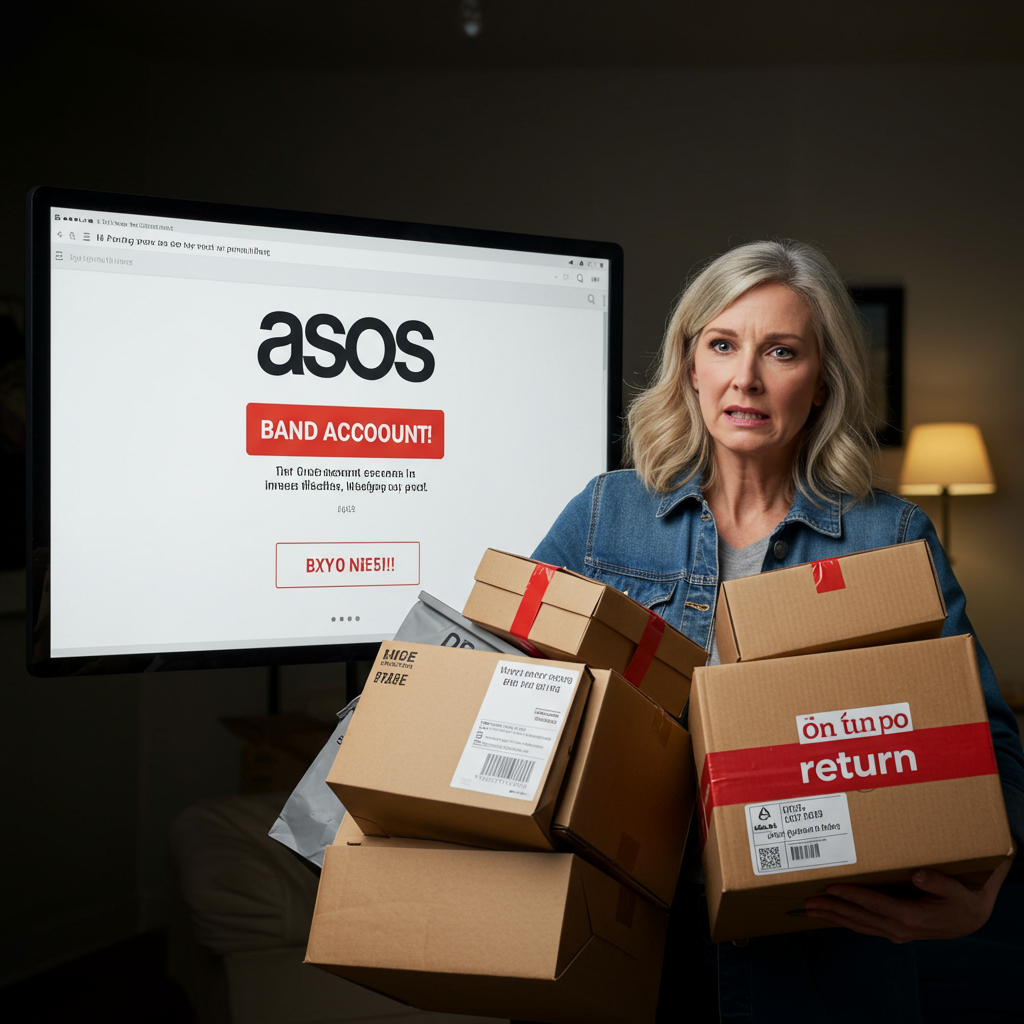Online fashion giant Asos is facing significant backlash after banning a number of customers from its platform, citing excessive returns. The move has sparked anger and frustration among shoppers, particularly loyal customers who feel unfairly targeted.
The account closures come after Asos introduced a controversial £3.95 fee last year for customers who make frequent returns and keep less than £40 worth of items from an order. Asos states the bans are based on breaches of its ‘fair use policy’.
Customer Outcry Over Account Closures
Customers who received emails informing them of their ban have expressed shock and dismay. Many are long-time Asos shoppers who rely on the retailer for their wardrobe needs.
Lucy Britnell, a self-described “shopaholic” and premier Asos customer since 2018, was banned despite regularly spending over £100 a month, including a recent £500 holiday shopping spree. Lucy highlights a common reason for her returns: unpredictable sizing, especially within Asos’s own brands, often necessitates ordering multiple sizes.
For Lucy, the ban felt like “a real slap in the face.” The timing was particularly jarring, as she received an email stating her account closure on the same day Asos sent her an Instagram request asking to feature a photo of her wearing one of their outfits. She stated the experience “really left a bad taste” and she would take her business elsewhere, even if the ban was lifted.
Difficulty Appealing Decisions
Other banned customers reported frustrating experiences when trying to appeal their account closures. Louise Gowrie from Glasgow claimed she was repeatedly “cut off” by Asos’s live chat service when attempting to raise a complaint, being told the decision was final without further explanation.
Frankie Allen, a PR director and two-decade Asos customer from London, also orders multiple sizes due to sizing inconsistencies. After being banned, she faced similar difficulties appealing via live chat, describing the responses as “robotic.” She believes this communication style has “alienated a lot of loyal customers.”
Asos’s Stance: Maintaining Free Returns for All
Asos defended its actions, stating it had closed accounts for a “small group of customers” whose shopping activity consistently fell outside its fair use policy.
The company explained that this measure helps them uphold their commitment to offering free returns to the vast majority of customers across its core markets.
Asos’s fair use policy, which customers agree to, allows the company to shut down accounts displaying “unusual or suspicious activity.” This includes “unusual patterns of returns activity” and the return of items that appear worn or used. Asos first warned customers about potential account deactivations based on such patterns in 2019, though customers perceive the recent crackdown as tougher.
The Business Challenge of High Returns
While customer frustration is high, some acknowledge the underlying business challenges Asos faces. Frankie Allen, despite her own ban, understands the need for stricter policies. She noted receiving returned items herself that were clearly worn or damaged, indicating that some customers abuse the policy.
Industry experts agree that managing high volumes of returns is not a sustainable business model. The costs associated with shipping items back to warehouses, processing them, and inspecting them for damage are significant. Retail expert Medi Parry-Williams points out that a return fee like Asos’s £3.95 often doesn’t cover these expenses, especially amid pressures like inflation and freight issues.
However, closing customer accounts is seen by some analysts as a “fairly severe line to take” and likely a decision Asos did not make lightly.
Broader Industry Trends
Asos is not alone in addressing the cost of returns. Following a surge in online shopping and returns during the pandemic, many retailers have introduced charges for postal or collection returns. Companies like Next, Zara, H&M, Uniqlo, and New Look now charge for returns, though often still offer free returns in-store.
Last year, fast fashion retailer Pretty Little Thing also faced criticism after deactivating accounts with high return rates shortly after introducing a return fee.
Calls for Policy Change
The controversy has sparked calls for Asos to reconsider its approach. Broadcaster Tskenya-Sarah Frazer, who was also banned, has launched an online petition urging Asos to halt “charging and punishing” customers for online returns.
Frazer, who identifies as plus-size, tall, and neurodivergent, highlighted that online shopping is often her only viable option as physical high streets shrink. She argues that in the current retail landscape, it is “absolutely imperative” that customers have the freedom to shop and return freely, especially for those who may struggle with sizing or accessing physical stores.
As the debate continues, the situation underscores the tension between the convenience customers expect from online shopping and the significant costs retailers incur from managing high return volumes. Asos declined further comment on the individual customer bans.




